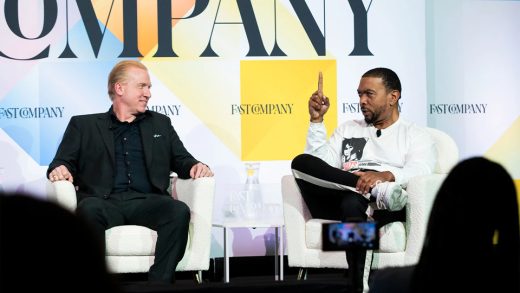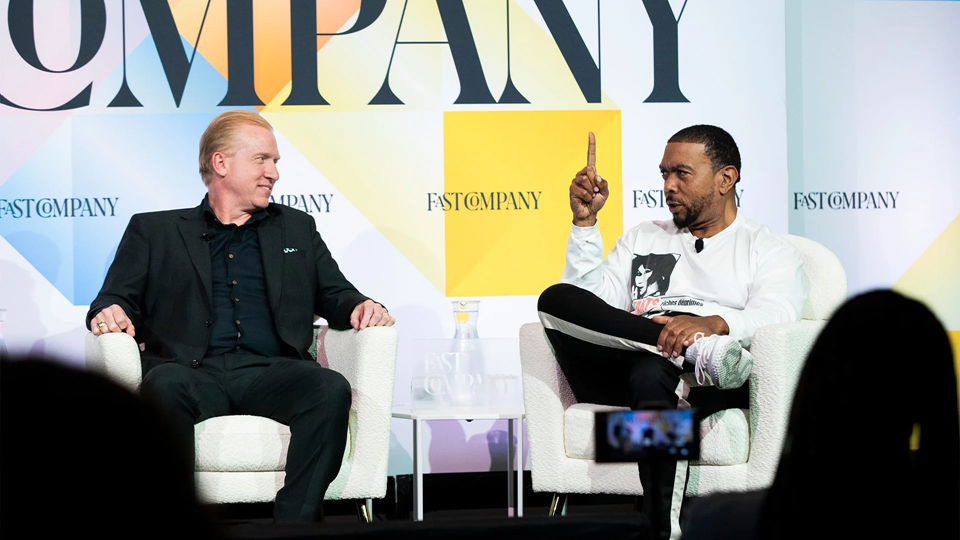This music registry could protect artists from having their work stolen by AI
This music registry could protect artists from having their work stolen by AI
Nonprofit SoundExchange announced the project in a conversation with Grammy-winning producer Timbaland at the Fast Company Innovation Festival.
BY Sam Becker
SoundExchange is taking steps to protect musicians in the AI age.
The nonprofit music and tech collective-rights organization revealed during a session at the Fast Company Innovation Festival on Thursday that it’s developing an AI registry for sound-recording creators and rights owners.
As artists have grown increasingly concerned about AI and similar models infringing on their work and affecting their earnings, SoundExchange’s registry will “provide a much-needed source for creators and rights owners to protect and preserve their rights regarding the use of their content in AI models,” according to a company release.
SoundExchange CEO Michael Huppe announced the news during a conversation at the festival with Timbaland, a Grammy-winning producer and artist.
SoundExchange is expected to launch in early 2025 and will serve as a system to collect and distribute royalties using the registry’s International Standard Recording Code database. That database is used to identify sound recordings to ensure that rights owners are aware of when and how their work is being used.
In effect, companies that are building and training AI models by ingesting sound recordings will be able to reference that database and ensure their use is authorized and that rights holders are in the know. The registry is meant to buffer the alleged theft of intellectual property for AI training—something for which many companies involved in AI development are already facing a flurry of lawsuits.
This story has been updated to remove an earlier reference to recording industry support for the registry, which was included in a draft press release.
(2)



